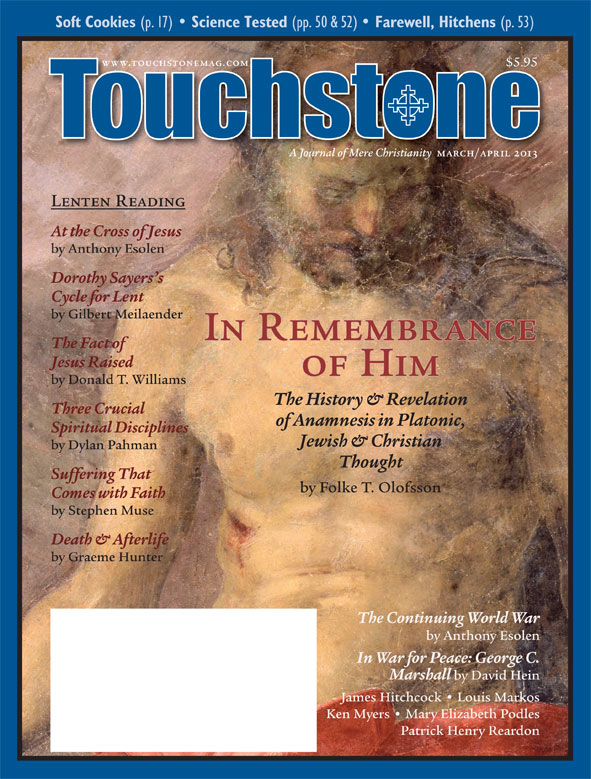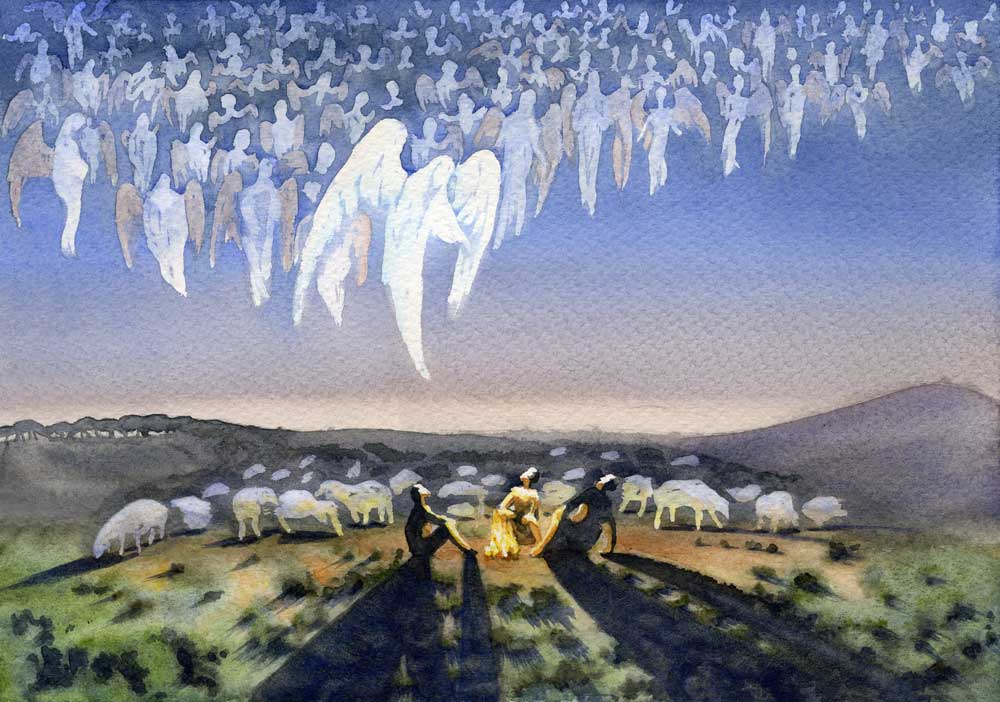View
Body of Evidence
Donald T. Williams on Liberal Klingons & the Hard Facts of Christian Faith
In a fascinating episode of Star Trek: The Next Generation, Kahless, the Klingon messiah, appears to have returned from death in fulfillment of a prophecy. Lt. Worf, the Klingon security officer on the Enterprise, has to decide whether or not he believes in the return. It turns out that the new Kahless is not really the genuine Kahless come again, but a clone of the original Kahless created in a laboratory. Nevertheless, conflict between those who accept his claims and those who do not threatens to plunge the Klingon Empire into civil war.
Worf comes up with a political compromise to save the Empire. In the process, there is much discussion of how to evaluate religious truth claims—a discussion that is relevant to Christian faith in the twenty-first century. It turns out that, for Klingons, faith is very much what it is for most modern and post-modern human beings, including many Christians—but not what it is for historic Christianity. And thereby hangs a tale.
As Worf is considering the claims of the allegedly resurrected Kahless, he is challenged: what empirical evidence is there for the truth of these claims? I would have thought this a good question, but Worf's answer is startling. "It's not an empirical matter," he replies. "It's a matter of faith."
Note carefully the implicit assumptions that lie behind that reply. "Empirical matters" and "matters of faith" are two different things, indeed, two different kinds of things. A question must be one or the other; it cannot be both. Faith therefore is something that exists independently of empirical evidence; evidence is irrelevant to faith. Faith must be affirmed or withheld on some other (unspecified) basis. On this view, the person asking for evidence regarding religious truth claims—evidence for "matters of faith"—has just committed a category mistake.
Two Hermetically Sealed Compartments
These assumptions are confirmed at the end of the episode. The clone is accepted, not as Kahless himself, but as his heir and prophet. Worf is still troubled by the apparent disconnect between Faith and Fact (strangely, given his earlier response). The clone's last words to him give the writers' concluding point. "If his [Kahless's] words are true, if his philosophy is honorable, what does it matter if he returns? Perhaps the words are more important than the man."
In other words, if it gives meaning to your life, embrace it, and don't worry about crude details like factual accuracy. Faith and Fact live in two separate, indeed, hermetically sealed, compartments. To try to make them meet betrays a primitive, uncivilized, dare we say Fundamentalist, mentality. Even the Klingons have evolved beyond that now!
The writers have simply reflected the conventional wisdom of modern and post-modern man about the nature of faith. It is a perspective that explains the paradox of liberal Protestantism, which wants still to follow Christ's words but be untroubled by whether he was actually born of a virgin or was raised from the dead or not. These unspoken assumptions are also held by a substantial number of the young Evangelicals who come to the conservative Christian college where I teach. They would be shocked to think so, since they do still believe that Jesus did rise from the dead. But they have a pietistic resistance to subjecting their faith to rational testing, because faith is, after all, a matter of the heart. They think faith and reason are a zero-sum game: The more you have of one, the less remains of the other.

So, in principle, they are no different from their liberal and secular peers in their understanding of what faith is. The Resurrection of Christ is not, in the final analysis, an empirical matter for them any more than the return of Kahless was for Lieutenant Worf.
The Uselessness of Words Without Fact
Donald T. Williams is Professor Emeritus of Toccoa Falls College. He stays permanently camped out on the borders between serious scholarship and pastoral ministry, between theology and literature, and between Narnia and Middle-Earth. He is the author of fourteen books, including Answers from Aslan: The Enduring Apologetics of C. S. Lewis (DeWard, 2023). He is a contributing editor of Touchstone.
subscription options
Order
Print/Online Subscription

Get six issues (one year) of Touchstone PLUS full online access including pdf downloads for only $39.95. That's only $3.34 per month!
Order
Online Only
Subscription

Get a one-year full-access subscription to the Touchstone online archives for only $19.95. That's only $1.66 per month!
bulk subscriptions
Order Touchstone subscriptions in bulk and save $10 per sub! Each subscription includes 6 issues of Touchstone plus full online access to touchstonemag.com—including archives, videos, and pdf downloads of recent issues for only $29.95 each! Great for churches or study groups.
Transactions will be processed on a secure server.
more on liberalism from the online archives
more from the online archives
calling all readers
Please Donate
"There are magazines worth reading but few worth saving . . . Touchstone is just such a magazine."
—Alice von Hildebrand
"Here we do not concede one square millimeter of territory to falsehood, folly, contemporary sentimentality, or fashion. We speak the truth, and let God be our judge. . . . Touchstone is the one committedly Christian conservative journal."
—Anthony Esolen, Touchstone senior editor













